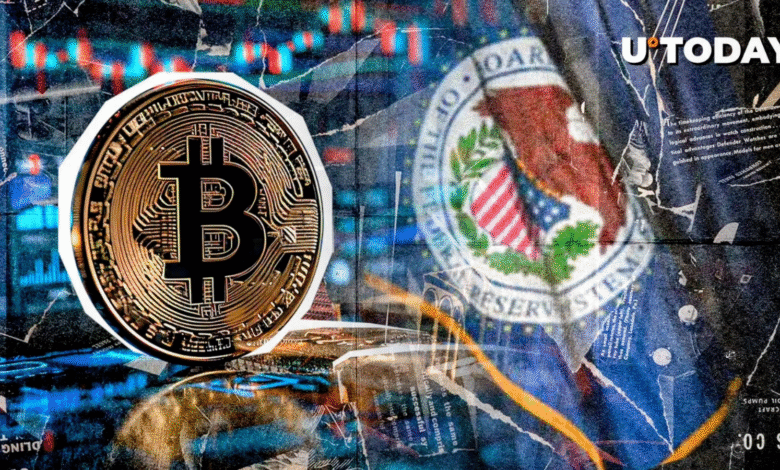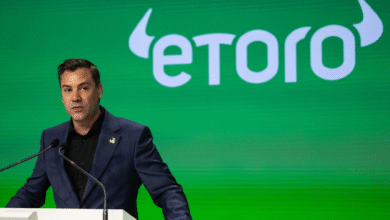Bitcoin Rate Cut Expectations Spark BTC to $110,000 Resistance

Bitcoin rate cut expectations are surging following recent economic reports that have shaken investor sentiment. The disappointing U.S. ADP employment report, which indicated a loss of jobs, has sparked renewed confidence in the prospect of Federal Reserve rate cuts, directly impacting Bitcoin’s price dynamics. As market analysts analyze these developments, BTC’s trajectory is being closely monitored, with a critical resistance level identified at $110,348 that could determine its next move. The interplay of these economic factors and Bitcoin’s performance creates a compelling narrative for traders and investors alike. Understanding the implications of the current crypto market analysis will be crucial as Bitcoin eyes potential breakout points in the coming days.
The rising anticipation of possible reductions in interest rates is reshaping the landscape for Bitcoin and other cryptocurrencies. With recent labor market data falling short of expectations, many are reassessing their Bitcoin price predictions, particularly in light of how these developments interact with broader financial policies. The Federal Reserve’s potential pivot away from higher rates could have cascading effects on BTC price trajectories as traders adapt to changing market conditions. Notably, the recent shifts point to key resistance levels that Bitcoin must breach to sustain upward momentum. As the crypto market reacts to economic indicators, understanding the implications of these shifts will help investors navigate the evolving dynamics.
Impact of ADP Employment Report on Bitcoin
The recent ADP employment report delivered disappointing figures, revealing a loss of 33,000 jobs in June, which starkly contrasted with the expected gain of 121,000 jobs. This unexpected contraction has sent ripples through the financial markets, significantly impacting cryptocurrency prices, particularly Bitcoin. Investors reacted swiftly to the news, and Bitcoin’s price surged as traders adjusted their portfolios based on shifts in market sentiment surrounding Federal Reserve rate cuts. Such data not only affects immediate trading strategies but also sets a longer-term narrative about the potential fragility of the U.S. job market, further compounding interest in alternative assets like Bitcoin.
As the market digested the implications of the ADP data, Bitcoin climbed to test critical resistance levels around $110,348. This level is now a focal point for traders, as a successful breakout above this threshold may pave the way for even more substantial gains. Moreover, the broader ramifications of the employment data suggest an ongoing narrative regarding the Federal Reserve’s monetary policy; weak job creation could lead to an environment where interest rates might be cut to stimulate economic growth. Consequently, Bitcoin, seen as a hedge against inflation and currency devaluation, is likely to attract more investors searching for opportunities amid turbulent times.
Bitcoin Rate Cut Expectations and Price Predictions
As expectations mount for Federal Reserve rate cuts following the recent employment data, Bitcoin’s price prediction has garnered significant attention from analysts. With rate cut expectations sitting at approximately 25.3% for July, this shift is expected to provide a momentum boost for risk assets, including cryptocurrencies. Bitcoin has historically shown sensitivity to macroeconomic changes, particularly in relation to monetary policy, and the current environment is no exception. Analysts are watching closely to see if BTC can maintain its upward trajectory and confirm the forecasts that suggest further resistance beyond $110,000 could be unlocked.
The interplay between Bitcoin’s price movements and anticipated Federal Reserve actions is reminiscent of past cycles where rate adjustments correlated with significant BTC price fluctuations. Essentially, if Bitcoin can hold above the critical resistance at $110,348, traders could anticipate a test of even higher levels, potentially exceeding $112,000. Conversely, any significant pullback may prompt buyers to capitalize on dips within the $106,000 to $105,000 range, highlighting the dynamic nature of the crypto market and the importance of macroeconomic indicators in shaping price developments.
Technical Analysis of Bitcoin’s Price Movements
Bitcoin’s recent price action around the $110,000 resistance level is a critical point for traders employing technical analysis strategies. After breaking above a key descending trendline, the crypto asset’s ability to sustain its position indicates bullish sentiment among traders. Analysts emphasize the importance of Bitcoin maintaining its footing within the resistance zone, as a failure to do so may lead to a retreat towards established support levels in the $105,000 to $102,560 range. This interplay between resistance and support levels is essential for traders looking to gauge entry points and manage risk effectively.
Incorporating advanced trading indicators into the analysis can provide insights into potential price trends. For instance, observing the Relative Strength Index (RSI) and moving averages can enhance predictions for Bitcoin’s trajectory. With weak ADP employment numbers likely to influence market psychology, traders are advised to monitor Bitcoin’s responsiveness to such macro developments. Should the cryptocurrency manage to break through and close above significant resistance levels, it could signal a robust bullish trend, encouraging increased buying pressure amidst the evolving expectations surrounding Federal Reserve monetary policy.
Crypto Market Analysis Post-ADP Report
The broader crypto market analysis following the disappointing ADP employment report showcases a significant shift in investor sentiment. As Bitcoin surged in response, other cryptocurrencies also experienced gains, reflecting a trend where investors pivot towards crypto assets during times of economic uncertainty. The immediate reaction to the ADP report highlights Bitcoin’s role as a sought-after alternative investment, reinforcing its status among traditional financial instruments. This dynamic illustrates a burgeoning interconnectedness between the crypto domain and broader economic indicators, pointing to an evolving investment landscape.
Moreover, the analysis of overall market trends post-ADP reveals that traders may need to diversify their portfolios further to manage risk effectively. As Bitcoin approaches new resistance levels, sharp fluctuations can be anticipated, encouraging astute investors to stay ahead of the curve. By keeping an eye on other altcoins and their movements relative to Bitcoin’s performance, traders can forge a more comprehensive understanding of market dynamics. The continuation of such market conditions is likely to provoke discussions about the future positioning of cryptocurrencies amid ongoing macroeconomic changes.
The Role of Federal Reserve in Bitcoin’s Market Trends
The Federal Reserve’s monetary policy has a profound influence on Bitcoin’s market trends, particularly evident in the wake of the most recent ADP employment report. The lowered expectations for rate hikes, compounded by weak job growth, serve as a backdrop for potential BTC appreciation. Many investors view Bitcoin not only as a digital asset but also as a hedge against traditional market volatility and economic downturns. This perception positions Bitcoin favorably as the Fed maneuvers through its complex monetary policy, prompting a re-evaluation of investment strategies among market participants.
Traders must remain vigilant to how changes in Federal Reserve policy can catalyze shifts in Bitcoin’s price movements. If further signs indicate that the Fed is likely to soften its stance, market euphoria may elevate Bitcoin prices significantly. As anticipated by analysts, should BTC break critical resistance levels, there could be potential implications for broader risk sentiment within financial markets, reinforcing the need for continuous monitoring of both BTC and macroeconomic indicators. Additionally, Bitcoin’s increasing correlation with traditional financial metrics underscores its growing legitimacy within the evolving economic landscape.
Future Implications for Bitcoin Price Movements
Looking ahead, the implications of the ADP miss open several avenues for Bitcoin price movements. Should the Federal Reserve proceed with rate cuts, BTC’s standing as a non-correlated asset could solidify its appeal among investors seeking protection against inflationary pressures. This transition could lead to a reevaluation of Bitcoin’s long-term price predictions, with many analysts predicting a stronger bullish trend if the macroeconomic environment continues to favor digital assets. The sentiment around Bitcoin is poised for transformation as market participants align their strategies with evolving economic indicators and inflationary concerns.
However, traders should also prepare for potential volatility, as market reactions could be swift and unpredictable in response to new economic data. This volatile nature of the crypto markets necessitates thorough research and analysis, encouraging traders to adopt proactive risk management strategies. For those inclined to capitalize on potential price movements, understanding the influence of Federal Reserve rate cuts provides critical insights into Bitcoin’s trading environment and future trajectory.
Viewing Bitcoin as a Long-Term Investment
As the landscape of traditional finance continues to evolve, many investors are increasingly viewing Bitcoin through the lens of long-term investment potential. The recent Jonson data reflects broader economic uncertainties that can drive individuals towards considering Bitcoin as a viable store of value. Averaging close to $110,000, Bitcoin is slowly establishing itself as a stable asset class that could serve to offset inflationary concerns, particularly if central banks continue to adopt accommodative monetary policies. Hence, Bitcoin’s long-term outlook becomes increasingly optimistic as it continues to challenge preconceived notions about its stability.
Emphasizing the importance of long-term perspectives, investors are encouraged to evaluate Bitcoin’s past performance during market downturns and periods of economic instability. This historical context illustrates Bitcoin’s resilience amid various macroeconomic challenges. As central banks like the Federal Reserve adapt to changing economic realities, Bitcoin’s rare supply dynamics may serve to attract new waves of institutional investment, further consolidating its role in diversified portfolios. Consequently, Bitcoin stands poised to play an important role in future financial landscapes, especially if it maintains its upward trajectory.
Risk Factors in Bitcoin Trading
Despite its growing prominence, trading Bitcoin is not without inherent risks, particularly in light of unpredictable market reactions to macroeconomic indicators like the ADP employment report. While analysts paint an optimistic picture for Bitcoin’s price movements, traders must remain cognizant of potential pitfalls, including regulatory scrutiny, market volatility, and liquidity issues. Factors affecting Bitcoin’s performance can shift rapidly as new data emerges, making disciplined trading practices essential for risk mitigation.
Moreover, the potential for sudden price fluctuations in response to external economic changes can catch traders unprepared, emphasizing the need for constant market monitoring. In this way, employing stop-loss strategies and diversification can help manage exposure to Bitcoin’s inherent volatility. As cryptocurrency markets continue to develop, adapting trading strategies to address these risks will be vital for securing financial growth while navigating the complex dynamics of Bitcoin trading.
Market Sentiment and Bitcoin Trading Strategy
The current market sentiment reflects an upbeat outlook for Bitcoin trading, particularly as indicators suggest a favorable atmosphere for risk assets in response to the latest macroeconomic data. The cascading effects of the ADP employment report, combined with the expectations of Federal Reserve rate cuts, have culminated in an optimistic wave among traders looking for opportunities. By analyzing sentiment and price movements closely, investors can adopt strategic approaches that align with the prevailing bullish narrative surrounding Bitcoin.
Nevertheless, caution should remain at the forefront of trading strategies, especially as geopolitical risks and economic uncertainties continue to influence market performance. By embracing a data-driven approach, traders can refine their strategies based on the shifting sentiment, adapting to new trends and indicators as Bitcoin navigates its price channels. Keeping abreast of broader economic developments and potential market shifts will empower investors to capitalize on favorable trading conditions while mitigating risks associated with Bitcoin investing.
Frequently Asked Questions
What are the current Bitcoin rate cut expectations following recent employment reports?
Recent weaker U.S. employment data, particularly the negative ADP report showing a loss of 33,000 jobs, has heightened Bitcoin rate cut expectations. This has led to an increased likelihood of Federal Reserve rate cuts, boosting Bitcoin prices as traders react favorably to the news.
How do Federal Reserve rate cuts impact Bitcoin price predictions?
Federal Reserve rate cuts generally lead to lower interest rates, which can boost liquidity in markets. This often results in a positive impact on Bitcoin price predictions, as investors tend to seek out riskier assets like BTC when traditional rates are low.
What is the significance of the BTC resistance level at $110,348 amid rate cut expectations?
The BTC resistance level at $110,348 is significant as it represents a critical threshold for Bitcoin amid rising rate cut expectations. A breakout above this level could signal further bullish momentum for Bitcoin in the near term.
How does the ADP employment report influence crypto market analysis, particularly for Bitcoin?
The ADP employment report plays a crucial role in crypto market analysis by providing insights into labor market health. A negative ADP report, like the recent one that missed forecasts, often leads to increased Bitcoin rate cut expectations and can cause rallies in the crypto markets.
What are the implications of a rate cut on Bitcoin and other cryptocurrencies?
Rate cuts typically lead to a more favorable environment for risk assets, including Bitcoin and other cryptocurrencies. Lower interest rates can drive investors toward BTC, increasing demand and potentially pushing prices higher as seen with current Bitcoin rate cut expectations.
What technical levels should Bitcoin traders watch in relation to Federal Reserve rate cut expectations?
Traders should monitor the critical resistance level at $110,348 for Bitcoin, as well as support levels between $105,000 and $102,560. These levels are significant for understanding BTC’s potential movements in light of shifting Federal Reserve rate cut expectations.
| Key Points | Details |
|---|---|
| Market Reaction to ADP Report | A surprising contraction of 33,000 jobs in June led to increased bets on rate cuts. |
| Rate Cut Odds | The odds of a Federal Reserve rate cut in July increased to 25.3%. |
| Bitcoin Performance | Bitcoin traded near $109,803, close to critical resistance at $110,348. |
| Resistance and Support Levels | Critical resistance at $110,348; support seen at $105,000 – $102,560. |
| Future Outlook | If BTC holds over $110,348, a test of $112,000 could occur; downside buying opportunities between $106,000 – $105,000. |
Summary
Bitcoin rate cut expectations surged after the weaker-than-expected ADP employment data, with analysts highlighting $110,348 as a critical resistance level for BTC. The job contraction raised the odds for a Federal Reserve rate cut, resulting in a significant bullish momentum for Bitcoin. Traders are now closely watching these key levels as they navigate potential buying opportunities and assess future market movements.




